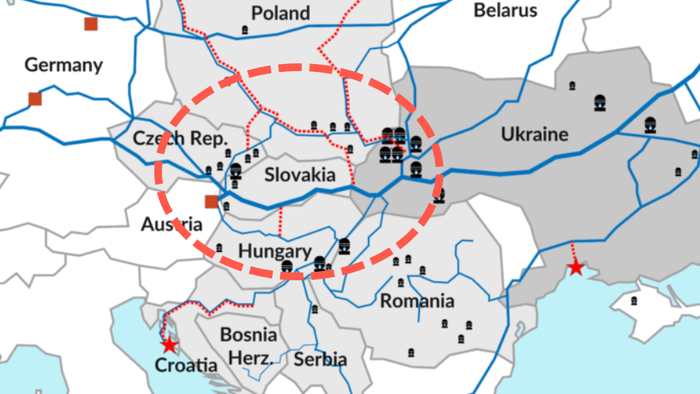Slovak Prime Minister Robert Fico recently raised alarms over the potential economic repercussions that could arise from the imminent expiration of a natural gas transit agreement between Ukraine and Russia. With Slovakia currently earning approximately $525 million annually in transit fees from the continued flow of Russian natural gas through Ukrainian pipelines, Fico emphasized the critical importance of these revenues for the country’s fiscal stability. In a candid statement, he questioned whether the Slovak government would allow the pipeline to “dry up” simply due to political grievances with Russia, highlighting a pragmatic approach to the energy crisis affecting many European nations.
In a united front, Slovakia’s state-owned energy company, SPP, along with partners from Hungary, Italy, and Austria, articulated their stance favoring the continuation of the Russian gas flows. Vojtech Ferencz, the CEO of SPP, stated that their formal declaration aims to advocate for the preservation of gas transportation through Ukraine, framing it as beneficial not only for gas consumers across Europe but also crucial for the stability of Ukraine’s gas infrastructure. This collaborative effort underscores the interdependence of European nations in energy supplies, as economic damage from disrupted flows could affect regional energy security and the broader economy, especially as winter approaches.
Ferencz further emphasized the financial implications for Slovakia if they were to lose Russian gas supplies. His assessments indicated that sourcing equivalent quantities from alternative suppliers would inflate costs significantly, with estimates suggesting an extra burden of at least 150 million euros for SPP alone and potentially over 220 million euros for the entire Slovak gas market. The looming increases in transit fees, coupled with potential wholesale price hikes, make the case for maintaining existing Russian NatGas flows even more pressing. This analytical perspective seeks not only to highlight the economic stakes involved but also to provoke a response from European policymakers regarding their current strategies.
As the deadline for the gas transit agreement approaches, the urgency for Slovakia escalates. Observations from local news sources indicated that Ukraine, currently embroiled in a conflict with Russia, has no intention of extending the deal, complicating the situation further. Fico and Ferencz’s appeals point to a broader concern within Europe as the region faces an ongoing energy crisis exacerbated by dwindling supplies and geopolitical strife. The potential halt of these gas flows could result in elevated natural gas prices throughout the EU, particularly as demand increases during the frigid winter months.
Market analysts are already warning of potential shortages if Russian gas flows cease. Goldman Sachs projected that European gas inventories might fall to critical levels by the end of the heating season, and although replenishment is anticipated over the summer, the unpredictability of energy supply dynamics poses significant risks. The economic ramifications of these supply disruptions could extend beyond immediate price surges to undermine the overall stability of both the European energy market and Ukraine’s economic landscape, especially given Ukraine’s strategic position in gas transit for Europe.
In conclusion, Prime Minister Fico’s statements encapsulate a moment of critical crossroads for Slovakia and potentially for broader European energy policy. The interplay between economic survival, energy security, and geopolitical tensions presents a complex challenge for leaders who must balance national priorities with the larger context of regional stability. As discussions continue and deadlines loom, the decisions made in the coming weeks could shape not only the future of Slovak energy policies but also the overall trajectory of energy dependence and cooperation across Europe in an increasingly uncertain geopolitical landscape.

